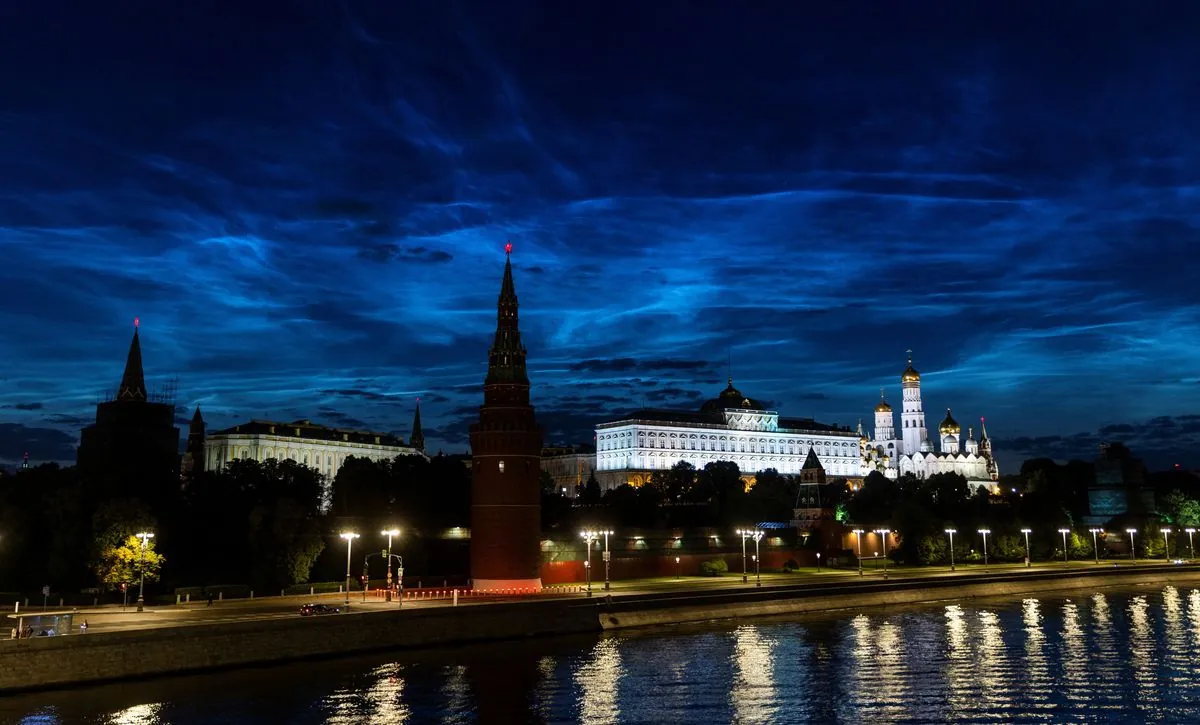Ukraine Launches Massive Drone Attack on Moscow, Advances in Kursk
Ukraine conducted a large-scale drone assault on Moscow and other Russian territories, while also making significant advances in Russia's Kursk region. Meanwhile, Russian forces threaten the strategic city of Pokrovsk in eastern Ukraine.

In a significant escalation of the ongoing conflict, Ukraine has launched one of its largest drone attacks on Moscow and other Russian territories. The operation, which occurred overnight, targeted various locations across Russia, including the capital city.
According to Russia's defense ministry, a total of 45 drones were intercepted over Russian territory, with 11 of them neutralized in Moscow alone. Sergey Sobyanin, the mayor of Moscow, described the attack as one of the most extensive to date. The assault led to temporary restrictions at Moscow's Vnukovo, Domodedovo, and Zhukovsky airports, disrupting air traffic in the region.

While Ukraine has not officially claimed responsibility for the airstrikes, such operations have become increasingly common as part of its military strategy. Ukrainian forces regularly conduct drone strikes and sabotage acts on Russian territory, focusing on strategic targets such as military bases, oil refineries, and industrial facilities.
In a separate incident, Ukraine's air force reported striking a Russian S-300 air defense system position in the Rostov region. Local authorities in Rostov also confirmed the downing of a missile. The S-300 is a sophisticated long-range surface-to-air missile system developed by the Soviet Union and later Russia, playing a crucial role in air defense operations.
The recent attacks come amid Ukraine's surprise incursion into Russia's Kursk region, which began on August 6, 2024. This operation has seen thousands of Ukrainian soldiers penetrate enemy territory, reportedly seizing control of approximately 480 square miles. Oleksandr Syrskyi, Ukraine's top commander, stated that Ukrainian forces have advanced between 17 and 22 miles into the Kursk region.
In response to these developments, Andrei Belousov, Russia's defense minister, announced the formation of three new military groupings to bolster security in regions bordering Ukraine. This move underscores the growing concern within Russian military leadership regarding the vulnerability of its border areas.
The Kursk operation represents the largest foreign attack on Russian territory since World War II, providing a significant morale boost for Ukrainian troops and potentially altering the strategic landscape of the conflict. However, the situation remains complex, with Russia continuing to make advances in certain areas of Ukraine.
Of particular concern is the city of Pokrovsk in the Donbas region, which serves as a crucial defensive stronghold and logistical hub for Ukrainian forces. Local authorities have ordered an evacuation of the city, giving residents until August 22, 2024, to flee the advancing Russian troops. The potential capture of Pokrovsk would severely compromise Ukraine's defensive capabilities and supply routes in the region.
As the conflict approaches its third year, both sides continue to employ increasingly sophisticated tactics and technologies. The extensive use of drones and other modern warfare equipment has become a hallmark of this war, reshaping military strategies and challenging traditional defense systems.
The ongoing hostilities have had far-reaching consequences beyond the immediate battlefield. The conflict has triggered the largest refugee crisis in Europe since World War II, with millions of Ukrainians displaced. Additionally, the war has led to significant economic sanctions against Russia by Western countries and has raised global food security concerns due to Ukraine's role as a major grain exporter.
As the situation continues to evolve, the international community remains deeply concerned about the escalating conflict and its potential for further regional destabilization. The United Nations General Assembly has passed several resolutions condemning Russia's invasion of Ukraine, while NATO countries have provided substantial military aid to support Ukraine's defense efforts.


































